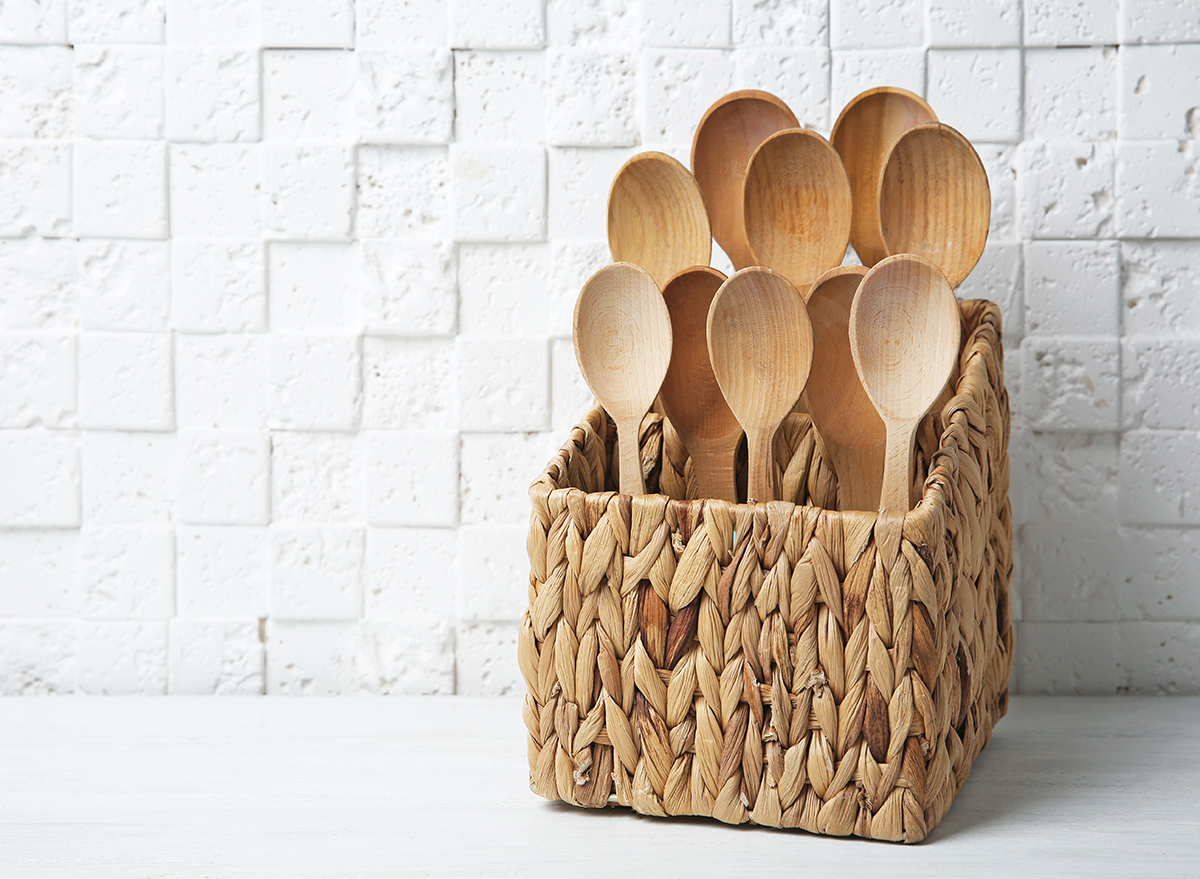Why You Should Only Use a Wooden Spoon When You Cook, According to a Chef

A wooden spoon is a timeless cooking tool, and it also happens to be one of the best kitchen utensils you can use. Whether stirring up a pot of stew or brownie batter, a wooden spoon can assist you with it all. We spoke with Heather Terhune, executive chef of Tre Rivali and The Outsider in Milwaukee, Wisconsin, for insight on why this is the best spoon of them all and why it should be the only utensil you use when you’re cooking.
What exactly is it about a wooden spoon that makes it a great cooking utensil?
The first quality that chef Terhune appreciates about a wooden spoon is that it’s durable.
“Wooden spoons are strong and sturdy, which means they’re great for stirring thick mixtures like cream puff paste and polenta without breaking,” says Terhune. “Wooden spoons are sturdy enough to scrape the bottom of the pan so whatever you’re cooking doesn’t scorch but soft enough that they won’t damage the pan.”
This point leads to another one of a wooden spoon’s best qualities: it won’t damage your cookware.
“For this reason, they’re a great option when using non-stick cookware,” she says.
Pro tip: Avoid using a metal spoon or spatula on a nonstick pan. A lot of non-stick pans are made from Teflon, which is a brand of the man-made chemical PTFE that could be problematic to your health if consumed. A metal utensil could scratch the surface of this kind of pan and contaminate the food.
Another important aspect of a wooden spoon or spatula is that they are heat-resistant.
“Wooden spoons don’t conduct heat as metal spoons do, and there is no risk of melting them.” In other words, you’re not going to burn your hand as you stir like you might with a metal spoon, and you won’t risk melting it either, as would be a concern for plastic spoons and spatulas.
What types of dishes do wooden spoons work best with?
“I use wooden spoons for just about everything,” says Terhune. “I love to bake, and wooden spoons are particularly great for making fudge and brittles.”
Wooden spoons are also good tools for more delicate cooking, too, such as stirring soups and sauces. However, the chef says it will be your go-to kitchen tool when you have to stir a particularly dense blend of ingredients.
“This is your tool for anything that requires a little more muscle in the kitchen,” she says.
Are there any dishes that a wooden spoon shouldn’t be used for?
The chef says that while there are many models of wooden spoons out there and they are such a versatile kitchen tool, there are a few dishes that a wooden spoon just isn’t cut out for.
“I don’t particularly like them for folding in egg whites or whipped cream to lighten batters; silicone spatulas are best suited for this,” she says.
How do you care for wooden spoons?
“Wooden spoons last a lifetime if they are taken care of. I still have some from my grandmother,” says Terhune. The chef also advises to always hand-wash wooden spoons. “Never let them soak in water, and never ever put them in the dishwasher.”
There is one important reason why you don’t want to put wooden kitchen tools in the dishwasher. While they are strong and sturdy, they can crack over time if they’re exposed to high heat for long periods of time. The drying cycle, in particular, poses a threat to the longevity of a wooden spoon. Food particles can embed into the cracks, which can cause bacteria to grow. You just have to give your wooden spoon a little TLC, and it will always have your back in the kitchen!